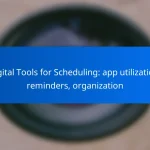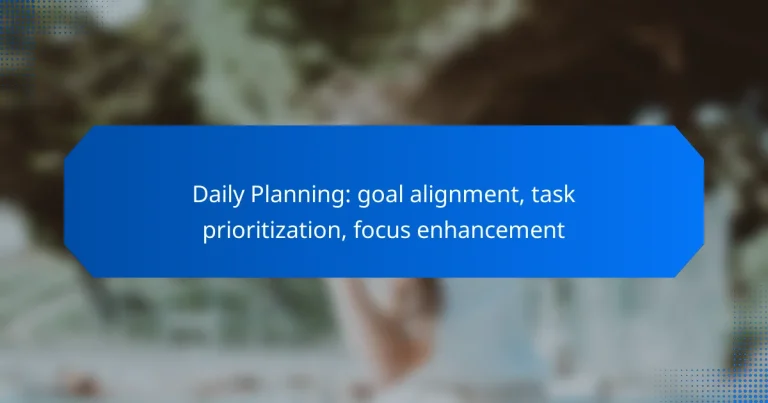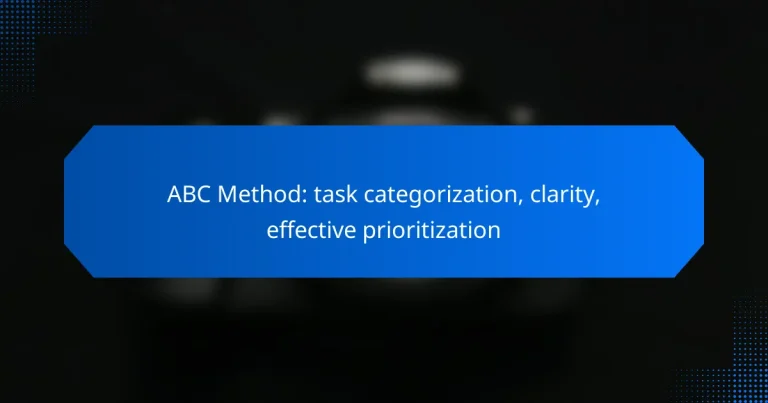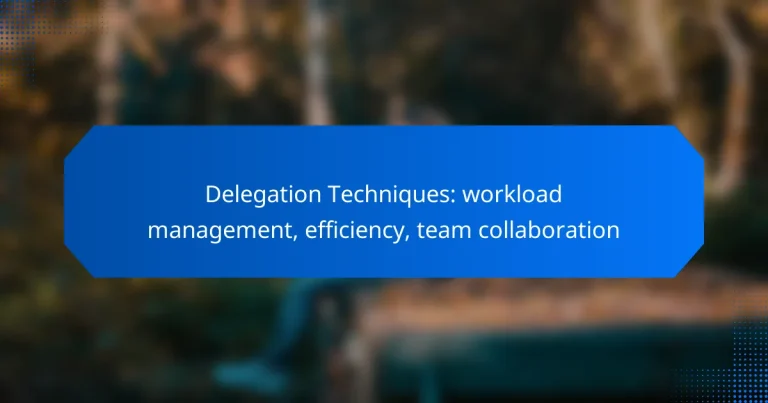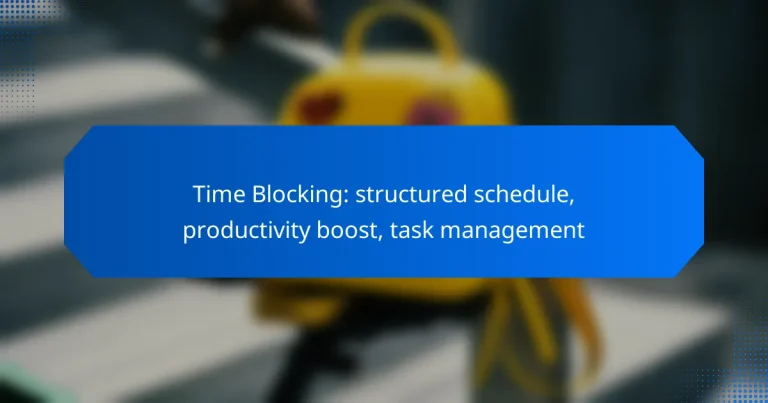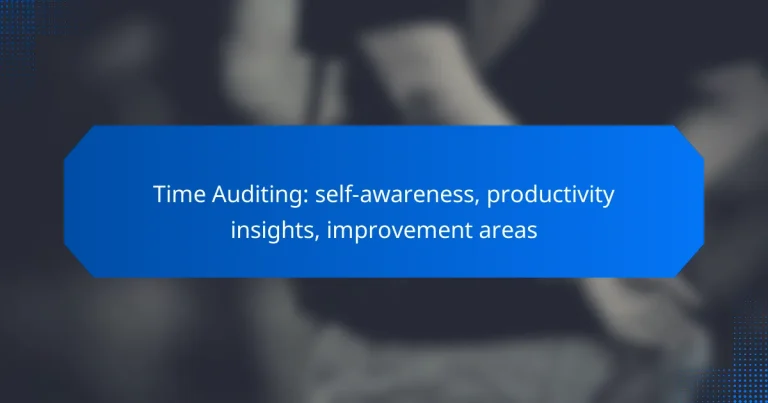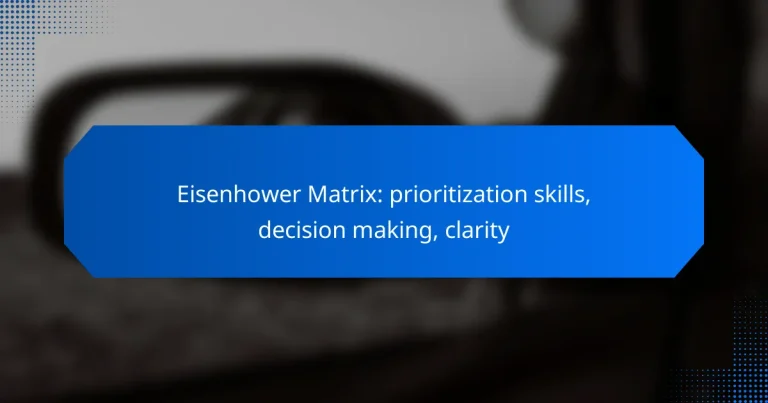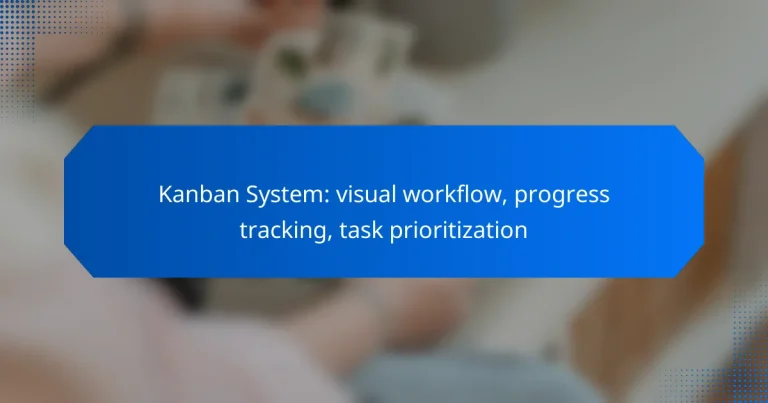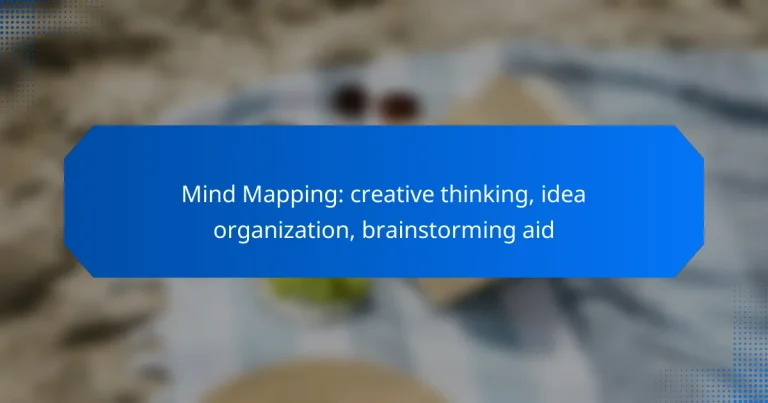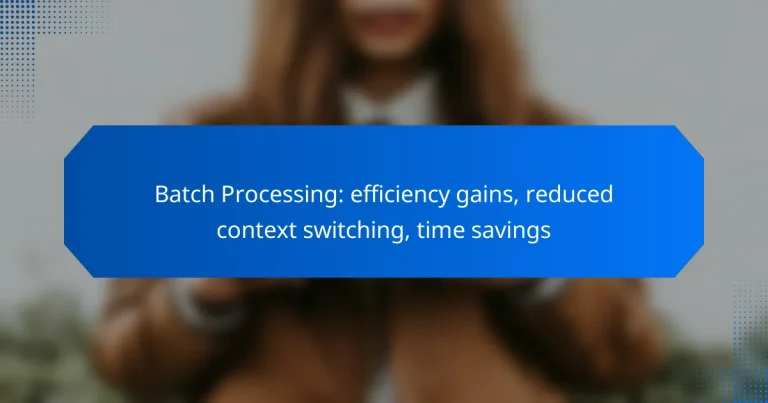How does effective time management improve productivity?
Effective time management significantly boosts productivity by allowing individuals to allocate their time efficiently, ensuring that critical tasks are completed promptly. By organizing and prioritizing activities, one can focus on what truly matters, leading to better outcomes and increased efficiency.
Increased focus on tasks
When time is managed effectively, individuals can concentrate better on their tasks without distractions. This focus allows for deeper engagement with work, resulting in higher quality outputs. Techniques such as the Pomodoro Technique, which involves working in short bursts followed by breaks, can enhance this focus.
Better prioritization of activities
Effective time management enables individuals to identify and prioritize tasks based on urgency and importance. Using tools like the Eisenhower Matrix can help distinguish between what is urgent and what is important, allowing for a more strategic approach to task completion. This ensures that high-priority activities receive the attention they deserve.
Enhanced work-life balance
By managing time wisely, individuals can create boundaries between work and personal life. This balance is crucial for maintaining mental health and overall well-being. Setting specific work hours and sticking to them can prevent burnout and promote a healthier lifestyle.
Reduction of stress levels
Effective time management can lead to lower stress levels by providing a clear structure for daily activities. When tasks are organized and deadlines are met, individuals experience less anxiety about their workload. Techniques such as planning weekly schedules can help visualize tasks and reduce the feeling of being overwhelmed.
Higher job satisfaction
When productivity increases due to effective time management, job satisfaction often follows. Completing tasks efficiently can lead to a sense of accomplishment and motivation. Additionally, having time for personal interests and family can enhance overall happiness and fulfillment in one’s career.
What are the key benefits of time management for professionals?
Effective time management offers professionals the ability to prioritize tasks, reduce stress, and enhance productivity. By organizing their schedules and responsibilities, individuals can achieve their goals more efficiently and make informed decisions.
Improved decision-making skills
Time management enhances decision-making by allowing professionals to allocate sufficient time for analysis and reflection. When individuals manage their time well, they can weigh options carefully, leading to more thoughtful and strategic choices.
For instance, setting aside specific times for brainstorming and evaluation can help professionals avoid hasty decisions. This structured approach often results in better outcomes and reduced regret over choices made under pressure.
Enhanced goal achievement
With effective time management, professionals can set clear, achievable goals and track their progress. This clarity helps individuals focus on what truly matters, making it easier to reach both short-term and long-term objectives.
Using tools like SMART criteria (Specific, Measurable, Achievable, Relevant, Time-bound) can guide professionals in defining their goals. Regularly reviewing and adjusting timelines ensures that they remain on track and motivated.
Greater efficiency in project completion
Time management fosters greater efficiency by enabling professionals to break projects into manageable tasks. This segmentation allows for better allocation of resources and time, reducing the likelihood of burnout and missed deadlines.
Employing techniques such as the Pomodoro Technique, where work is divided into focused intervals followed by short breaks, can enhance concentration and productivity. Additionally, prioritizing tasks using methods like the Eisenhower Matrix helps in tackling the most critical activities first.
What strategies can enhance time management skills?
Effective time management skills can be enhanced through various strategies that promote organization and focus. Implementing structured methods helps individuals prioritize tasks, reduce procrastination, and increase productivity.
Utilizing digital tools like Trello
Digital tools like Trello can significantly improve time management by providing a visual overview of tasks and deadlines. Users can create boards for different projects, add cards for individual tasks, and set due dates to keep track of progress.
To maximize Trello’s effectiveness, categorize tasks by priority or project phase. This allows for quick adjustments and ensures that important deadlines are met. Regularly reviewing and updating boards can help maintain focus and accountability.
Implementing the Pomodoro Technique
The Pomodoro Technique is a time management method that breaks work into intervals, usually 25 minutes, followed by a short break. This approach helps maintain concentration and prevents burnout by providing regular rest periods.
To implement this technique, choose a task, set a timer for 25 minutes, and work until the timer goes off. After completing four intervals, take a longer break of 15-30 minutes. This structured approach can enhance productivity and make tasks feel more manageable.
Setting SMART goals
Setting SMART goals—Specific, Measurable, Achievable, Relevant, and Time-bound—provides clarity and direction in time management. This framework ensures that goals are well-defined and attainable, making it easier to track progress.
For example, instead of saying “I want to get better at writing,” a SMART goal would be “I will write 500 words every weekday for the next month.” This specificity helps maintain focus and motivation, leading to better time management outcomes.
How can time management impact personal life?
Effective time management can significantly enhance personal life by creating a balance between work and leisure. By prioritizing tasks and allocating time wisely, individuals can enjoy more fulfilling relationships and personal interests.
More time for family and hobbies
When time is managed effectively, individuals can allocate specific periods for family and hobbies, leading to stronger relationships and personal satisfaction. Setting aside dedicated time for family activities or personal interests allows for deeper connections and a more enriched life.
Consider using a weekly planner to block out time for family dinners or hobby sessions. Aim for at least a few hours each week to engage in activities that bring joy, which can help in maintaining a balanced lifestyle.
Improved mental health
Effective time management can lead to reduced stress and anxiety, contributing to better mental health. By organizing tasks and avoiding last-minute rushes, individuals can feel more in control and less overwhelmed.
Implementing techniques such as the Pomodoro Technique, which involves working in focused bursts followed by short breaks, can enhance productivity and mental clarity. Regularly reviewing and adjusting your schedule can also help in identifying areas for improvement, ensuring a healthier mindset.
What are the prerequisites for effective time management?
Effective time management requires self-awareness and a clear understanding of priorities. It involves recognizing how you currently use your time and identifying areas for improvement.
Understanding personal time usage
To manage time effectively, start by tracking how you spend your hours each day. This can be done through simple methods like journaling or using time-tracking apps. Aim to categorize activities into productive, neutral, and unproductive segments.
After a week of tracking, review your data to identify patterns. For instance, you might find that you spend a significant portion of your day on social media or unnecessary meetings. This insight is crucial for making informed adjustments.
Identifying time-wasting activities
Recognizing time-wasting activities is essential for improving time management. Common culprits include excessive multitasking, frequent interruptions, and poorly planned meetings. Make a list of activities that drain your time without adding value.
Once identified, consider strategies to minimize these distractions. For example, set specific times for checking emails instead of responding immediately, and establish clear agendas for meetings to keep them focused. This approach can significantly enhance productivity and efficiency.
How do different cultures approach time management?
Cultures vary significantly in their approach to time management, influencing workplace dynamics and productivity. While some cultures prioritize punctuality and strict schedules, others adopt a more flexible attitude towards time, focusing on relationships and outcomes rather than strict adherence to timelines.
Time management in American workplaces
In American workplaces, time management often emphasizes efficiency, punctuality, and productivity. Employees are generally expected to adhere to strict schedules, with meetings and deadlines being a crucial part of the work culture. Tools like calendars, project management software, and time-tracking apps are commonly used to optimize workflows.
A typical practice is the use of time-blocking, where employees allocate specific blocks of time for different tasks. This method helps in prioritizing work and minimizing distractions. However, a common pitfall is over-scheduling, which can lead to burnout and decreased productivity.
Time management practices in Japan
In Japan, time management is often characterized by a strong emphasis on teamwork and consensus-building. While punctuality is highly valued, the approach to deadlines can be more flexible, allowing for adjustments based on group dynamics and project needs. Meetings often involve extensive discussions to ensure everyone is on the same page.
One effective practice in Japanese workplaces is the use of the “5S” methodology, which focuses on organizing and standardizing workspaces to enhance efficiency. This method can improve time management by reducing waste and streamlining processes. However, it is essential to balance collaboration with individual accountability to avoid delays in decision-making.



